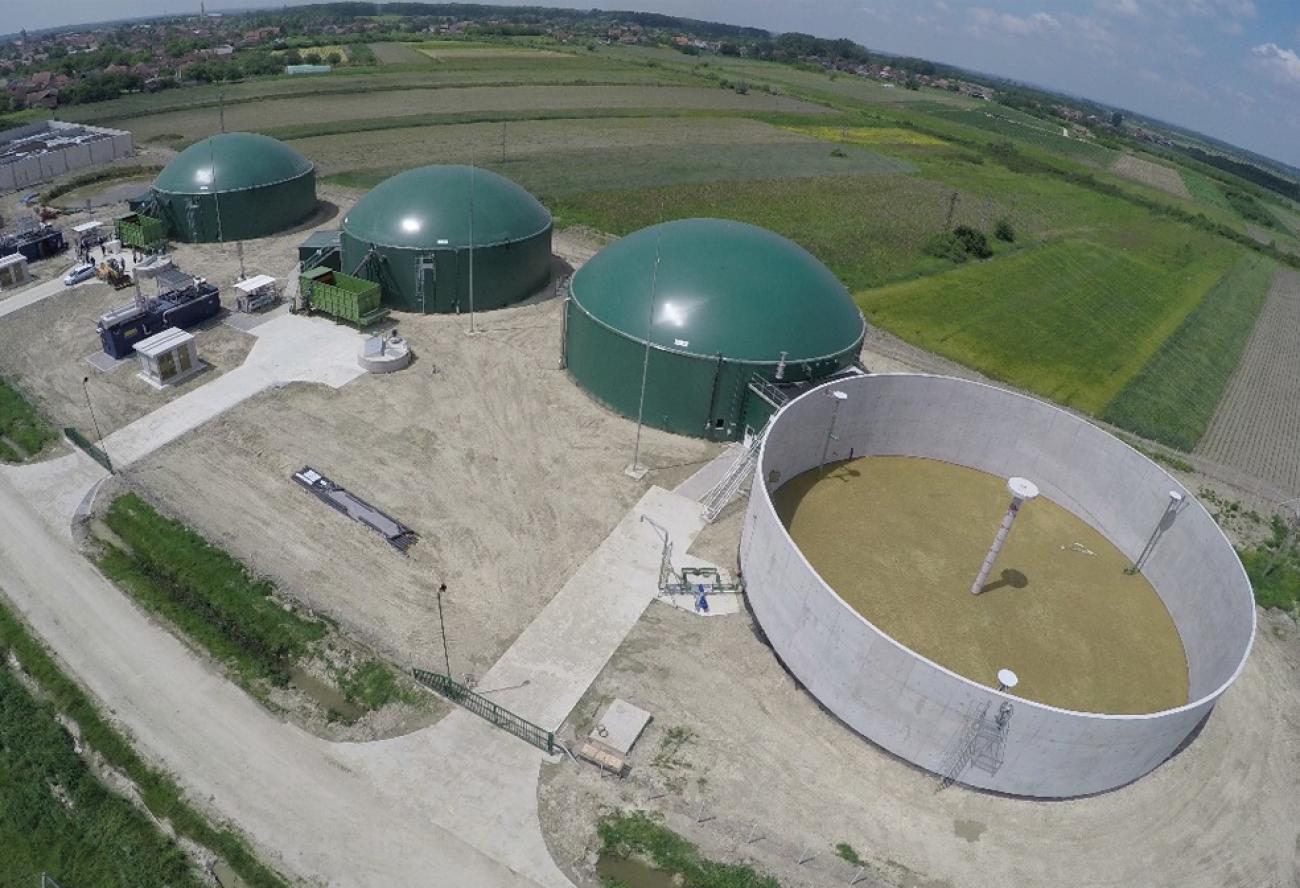Biogas is making inroads into Serbia’s energy market as UNDP and the Global Environment Facility (GEF) concluded a five-year US $3 million project resulting in major investments into new biogas projects in Serbia. The project is expected to deliver direct CO2 reductions of approximately by 1 million tons during 20 years of the life-cycle of the investments.
The project focused on policy and financial de-risking by creating regulations and a price mechanism, which enables heat and power plants to sell their electricity to the state for further distribution across the national power network. In this way, the project aims to make biogas in Serbia more attractive for investment.
“Previously, there have never been prices for biogas in Serbia. When you don’t have a price for something, everything is up for negotiation, which makes the market risky. Now that there is a clear price – also known as feed-in tariff – it gives a clear long-term price signal, making it easy for investors,” said Maja Matejic, the UNDP Portfolio Manager in Belgrade.
The initiative combined $1.6 million in GEF grants with equity and loans from commercial banks to develop 6.4 MW of viable biogas projects, leveraging over $22 million in private sector investment to support six private sector companies.
The grants brought down the cost of equity and made it easier for the companies to invest into creating viable biogas businesses, while technical support for business plans and feasibility studies helped them overcome the difficulties of figuring out the process of generating biogas to connect it to the grid. The project also worked with municipalities to help them understand the industry’s immense potential.
“A key criteria for providing a grant was the ability of the private sector investor to show they were going to be able to reach financial closure, to make it work and turn a profit,” explained John O’Brien, UNDP Regional Technical Advisor on Climate Change Mitigation at the UNDP Istanbul Regional Hub.
The introduction of the six new combined heat and power (CHP) plants created a total of 100 new green jobs, increased the local tax-base (salary tax and corporate profit tax), reduced waste and effluents from agricultural production and improved the quality of local electricity distribution network. “Though the numbers may seem small, their impact on local communities will be huge,” O’Brien added.
The project also set up an e-trading platform for sellers and purchasers of various forms of biogas and biomass to meet and to expand the market.
Biogas results from the breakdown of organic matter and is carbon-neutral, making it a potentially powerful, climate-friendly source of energy. Biogas can come from various sources such as animal waste, agricultural waste, and industrial waste.



